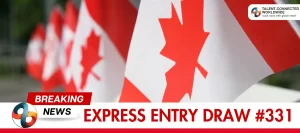
The Provincial Attestation Letter (PAL) and the Territorial Attestation Letter (TAL) are mandatory documents to submit with the study permit application. The PAL and TAL are given by the province or the territory you aim to study in. Once a foreign student gets an acceptance letter from their selected academic institution, they can request the Provincial Attestation Letter.
A PAL or TAL proves you are within the provincial or territorial limit of accepting foreign student admissions.
The IRCC announced the Provincial Attestation Letter (PAL) to keep track of the foreign students who enroll in Canadian universities and arrive in the country. The Canadian government has set a limitation on the admission of international students for two years. For 2024, the IRCC will only accept 291,914 study permit applications. As a result, each Canadian province also has a limit to the number of foreign students they can admit to their colleges and universities. This limit depends on the province’s population and is determined by the IRCC.
Download Free Immigration and PR Guide PDF
A Provincial Attestation Letter:
- Informs the province about the number of international students who are approved for their universities
- They get to know the number of students who have accepted the offer letter and will come to the province to study
- Once the province knows the number of incoming international students, they are better equipped to provide the necessary facilities such as housing and suitable academic infrastructure
Who requires a Provincial Attestation Letter or PAL?
Since January 2024, an international student requires a Provincial Attestation Letter (PAL) or a Territorial Attestation Letter (TAL) if:
- they are an undergraduate student applying for bachelor’s degree programs
- they are a student of English as a Second Language (ESL)
- they are admitted to any other academic program that is longer than six months. It should not be a master’s or a PhD degree program.
How to get a Provincial Attestation Letter (PAL) in Canada?
You can apply for a Provincial Attestation Letter (PAL) in Canada only after you get a letter of acceptance from a Canadian institution. Make sure that you request for the PAL before applying to the study permit.
For example, if you get an acceptance letter from the University of Alberta, you will need to accept the admission offer and pay the tuition fee. Once you have deposited the fee, you can request the PAL from the institution. The university will then request Alberta to provide a Provincial Attestation Letter (PAL). You will get an email from the University of Alberta stating that the PAL is available to download.
Who does not need a Provincial Attestation Letter?
You do not need a Provincial Attestation Letter if:
- you are applying to a preschool, primary school, secondary school till grade 12, or a federal military college.
- you are applying to a school in Quebec for a vocational training program
- you are applying to a master’s or doctoral program, you do not need a study permit
- you have a work permit
- you are eligible for permanent residence based on humanitarian grounds, family sponsorship, and a current public policy.
- you are already in Canada and are related to a foreign national living in the country with a valid status.
Students who are extending their studies in Canada do not need a Provincial or Territorial Attestation Letter.
Maximum Number of Provincial Attestation Letters for each Canadian Province/Territory
IRCC has allocated a fixed number of PALs that the Canadian provinces can issue to a foreign student. Below is the total number of Provincial Attestation Letters allocated to each province for 2024.
| Canadian Province / Territory | Approximate PAL allocation |
|---|---|
| Alberta | 40,894 |
| British Columbia | 83,000 |
| Manitoba | 18,652 |
| New Brunswick | 14,651 |
| Newfoundland and Labrador | 3,153 |
| Northwest Territories | 333 |
| Nova Scotia | 20,378 |
| Nunavut | 333 |
| Ontario | 235,000 |
| Prince Edward Island | 2,312 |
| Quebec | 117,917 |
| Saskatchewan | 15,000 |
| Yukon | 417 |
| Total allocations | 552,095 |
Understand the complete process of studying in Canada. Contact Talent Connected Worldwide now.






